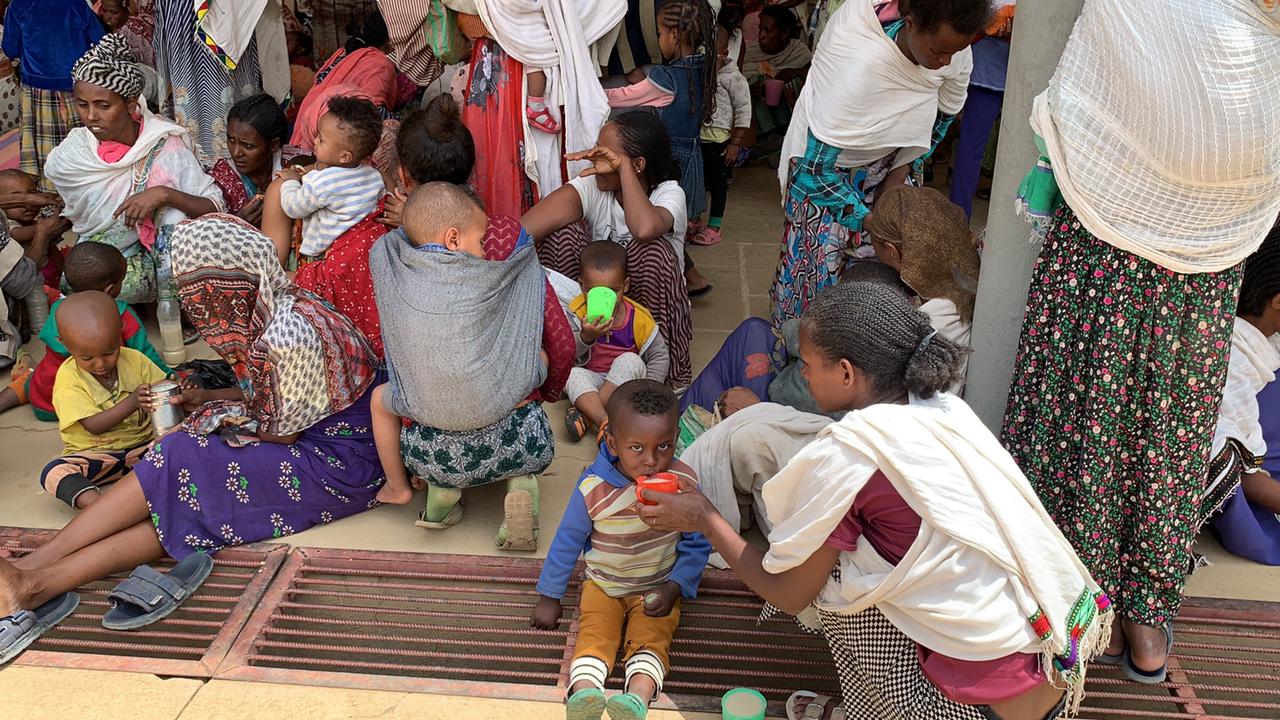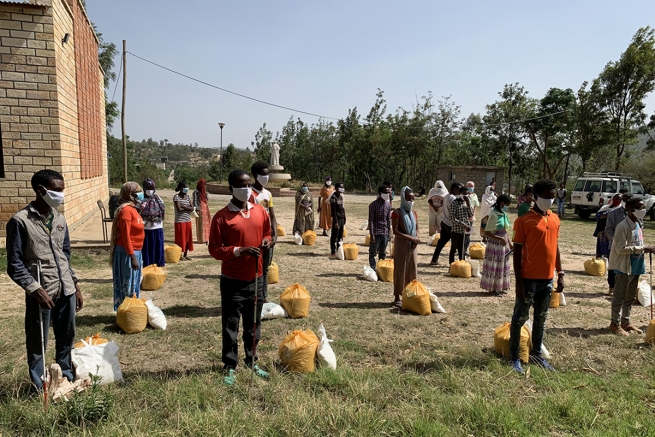UNICEF Marks WORLD FOOD DAY with a Focus on Undernourished Children
(UNICEF) Undernutrition remains a major killer of children under five years of age, contributing to approximately 50 per cent of the more than 10 million child deaths every year, said UNICEF on World Food Day.
World Food Day brings attention to the plight of the world’s hungry and undernourished and provides an opportunity for a deeper understanding of the complex solutions. This year’s theme is investing in agriculture for food security.
“In the developing world one to two per cent of all children under five, or approximately 13 million, suffer from severe acute undernutrition,” said Ann M. Veneman, UNICEF’s Executive Director. “These children have a much higher risk of dying, including from common childhood illnesses such as diarrhea and pneumonia, than a well nourished child. Agriculture production on the national and local level is critical for making sustainable progress.”
New evidence shows that if detected early, children suffering from severe acute undernutrition can be effectively treated within their homes and communities, without being admitted to health facilities, sometimes miles away from their homes.
“Though the total numbers of hungry and undernourished children can be disheartening, the reality is that children can recover,” said Veneman. “With the addition of community-based treatment and new technology, much more can now be done to reach undernourished children and to address this important cause of child mortality.”
UNICEF is working at the community level to identify severely undernourished children early and provide treatment. This involves teaching parents and communities how to identify an undernourished child, and to provide them with the tools they need to treat that child at home.
UNICEF is supplying NGOs and governments with a specialized ready-to-use high energy food containing essential vitamins and minerals, which children can be treated with at home. With this high-energy food, children only need to be seen once a week by a health worker to receive essential medicines, have their progress checked, and receive their week’s supply of ready–to–use therapeutic food.
A child suffering from severe acute undernutrition needs 10 to 15 kilograms of ready-to-use therapeutic food for six to eight weeks to recover. UNICEF is encouraging localized production of this vital therapeutic food, as it reduces the expense to less than three dollars per kilogram—putting the cost of food needed to save an undernourished child’s life to around 45 dollars.
In Ethiopia, UNICEF is supporting community based treatment programs for undernutrition. Since adopting the strategy, Ethiopia’s capacity to treat children suffering from acute undernutrition at any one time has increased from 2,000 in 2003 to 10,000 in 2006.
In addition to treatment of severe undernutrition, scaled up investment in prevention is critical. Prevention can be achieved by: ensuring a better access to high quality foods; educating mothers, promoting exclusive breastfeeding for the first 6 months of a child’s life; and appropriate complementary feeding practices for all children 6-24 months. Providing micronutrient supplements and improved water and sanitation systems and improving access to health care are also essential.
###
PHOTO: UN Photo/ Eskinder Debebe




